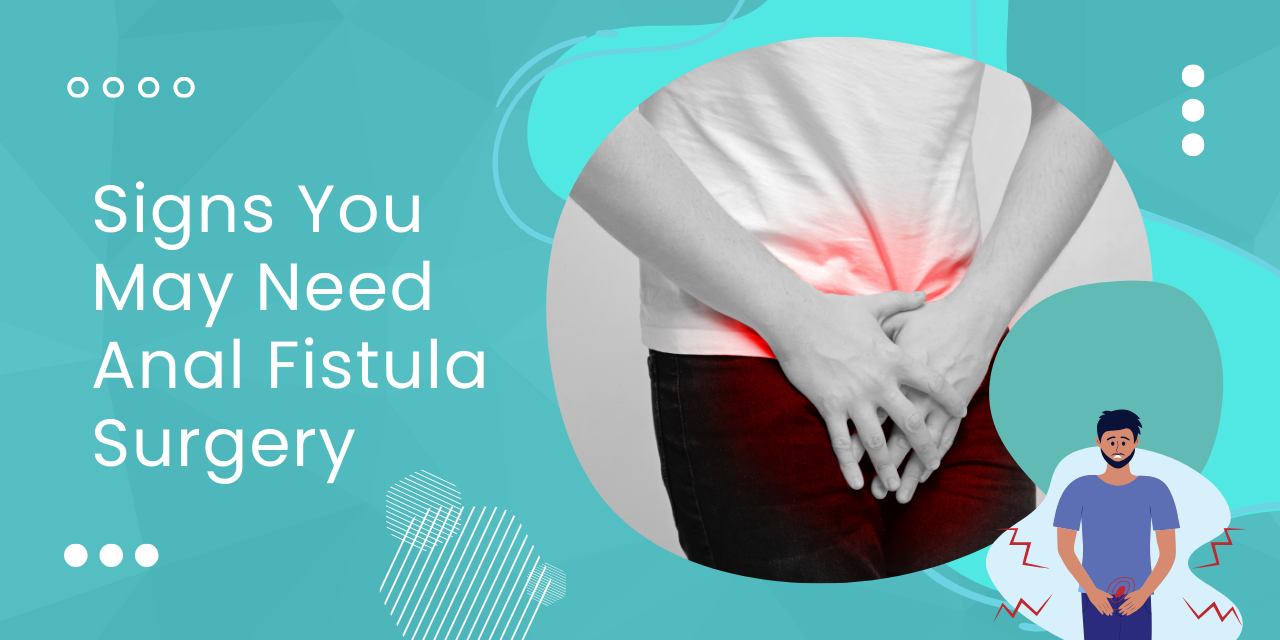Anal fistulas are abnormal connections that form between the anal canal and the skin surrounding the anus. They can cause considerable discomfort and may require surgical intervention to resolve. Recognizing the common symptoms associated with anal fistulas can help individuals seek timely medical advice and prevent complications. In this article, we’ll explore the symptoms that might indicate the need for anal fistula, providing valuable information for those affected.
Understanding Anal Fistulas
An anal fistula typically develops as a result of an infection or abscess in the anal gland, which leads to the formation of a tunnel-like structure between the anal canal and the skin. If left untreated, anal fistulas can lead to persistent problems, including pain, infection, and drainage. Surgery is often recommended to eliminate the fistula and prevent recurrence.
Common Symptoms Indicating the Need for Anal Fistula Surgery
⍆ Persistent Anal Pain
One of the primary symptoms of an anal fistula is persistent pain around the anus. This pain may be sharp, throbbing, or aching and often worsens during bowel movements. The discomfort can be severe enough to interfere with daily activities and may not be relieved by over-the-counter pain medications.
⍆ Frequent Anal Discharge
Anal fistulas often result in a continuous discharge of pus or stool from the affected area. This discharge can be bothersome and may cause irritation and itching around the anus. The fluid may have an unpleasant odor and can stain clothing, contributing to hygiene issues.
⍆ Swelling and Redness
Inflammation around the anus is another common symptom of an anal fistula. The affected area may appear swollen, red, and tender to the touch. In some cases, individuals may experience a noticeable lump or bump near the anus, which could indicate an abscess or an active fistula.
⍆ Recurrent Anal Abscesses
Recurrent anal abscesses, which are painful collections of pus, can be a sign that an anal fistula is present. These abscesses may resolve temporarily with antibiotics but often return, suggesting that a fistula is causing ongoing infection. If you experience frequent abscesses, it’s important to consult a healthcare provider for further evaluation.
⍆ Fever and Malaise
In some cases, individuals with anal fistulas may develop systemic symptoms such as fever and general malaise. These symptoms indicate that the infection associated with the fistula is affecting the overall health and may necessitate surgical intervention to address the underlying problem.
⍆ Difficulty with Bowel Movements
Anal fistulas can make bowel movements painful and difficult. The discomfort may be exacerbated by straining, and some individuals may experience a sensation of incomplete evacuation. This can impact daily life and lead to avoidance of regular bowel movements, further compounding the issue.
Treatment Options for Anal Fistulas
Surgical treatment is often required to effectively manage anal fistulas. For those seeking Anal Fistula treatment in Panchkula, several surgical techniques are available, including:
- Fistulotomy: This involves opening the fistula tract and allowing it to heal from the inside out.
- Seton Placement: A seton is a drainage tube placed within the fistula to facilitate healing and reduce infection.
- Advancement Flap Surgery: This technique involves covering the fistula with a flap of healthy tissue to promote healing.
The choice of surgical method depends on the type and complexity of the fistula, as well as the patient’s overall health.
Conclusion
Anal fistulas can cause significant discomfort and complications if left untreated. Recognizing the common symptoms, such as persistent pain, discharge, swelling, and recurrent abscesses, is essential for timely intervention.Dr.Sunil Malhotra at Malhotra Hospital & Orthopedic Centre specializes in diagnosing and treating anal fistulas. Early treatment can help alleviate symptoms, improve quality of life, and prevent future complications. For more information or to schedule an appointment, please contact us at +917302217302.

